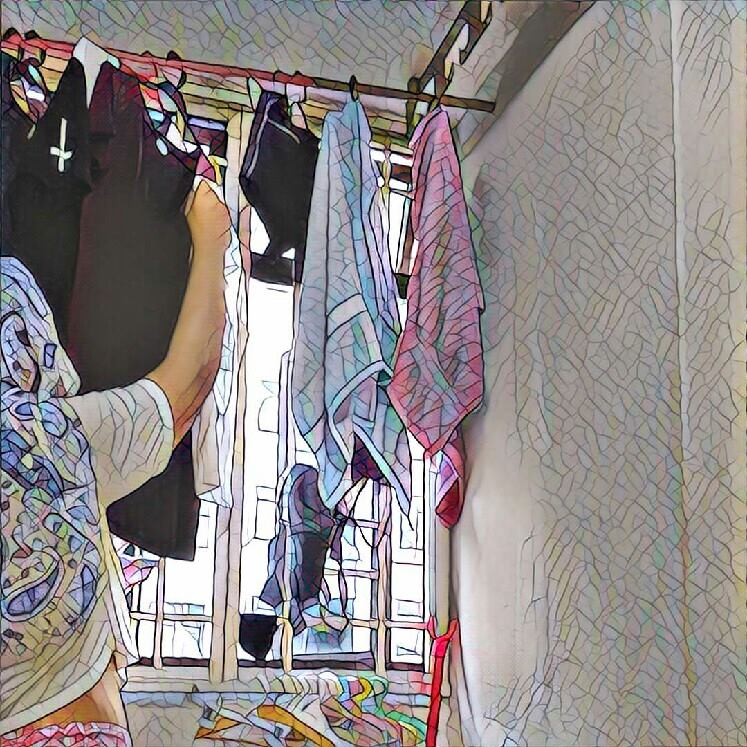Introduction
How do you validate unpaid domestic work? Most of us will be influenced by cultures belief and family views on domestic work. When we do think about it, we mostly imagine only cisgender women as those who participate in unpaid care work. This is because we view these chores as a woman’s responsibility due to cultural norms.
Can the responsibility of unpaid care work result in profit? Or is it never profitable work despite it benefiting people surrounding her? For women who have to be home all day, various unpaid care work they engage in include but are not limited to laundry, sweeping the floor and/or looking after another family member – elder or younger siblings. Many women engage in unpaid care work out of necessity, such as their family’s financial situation. As such, there is no conversation surrounding alternatives as women’s unpaid labor is a quick fix to the dire situation. It is easy to just say what is so tough about engaging in unpaid care work? It is tough because it stops a woman from fulfilling her own commitments such as going to work for her own expenses. For those who are employed and have to engage in unpaid care work, they have to juggle between their careers and domestic work which results in them having lesser time for rest and leisure activities.
House chores and responsibility has been classified as normal for each of us. All we need is time management to finish the chores. And also it can be done by any members of the household members, which includes transgender women.
Personal Stories
Ariel is a 25-year-old transgender woman who looks after her grandmother – she needs to be served meals and medicines. Ariel also does the house chores, such as doing the laundry and wash the dishes. These are her daily tasks before she heads out to work in the evening. Currently, she is staying with her grandmother and young brother. Ariel took the role as the housekeeper as she is not staying with her parents; who will only come home once a week. As a result, Ariel has lesser sleeping hours and sometimes gets delayed getting to work. Though she contributes financially to the house bills, she is not paid for looking after her grandmother and doing the chores.
Responsibility aside, earning my own money is also important.
Like Ariel, Sharifah Jasmine is an 18 years old transgender woman who looks after her nieces, aged of 3 and 7 for the past 3 years. Even though she is not paid, she is fine with it as they are her nieces. She also helps her parents in maintaining the cleanliness of the house and also contributes financially. Though she loves taking care of her nieces and parents, she still encounters restrictions such as being unable to go out to meet her clients as she is still doing sex work despite having a day job. Even though Sharifah Jasmine can balance it well and always thinks positive, she still feels tired due to her tight schedule.
Hunting for a job usually takes a very long time and while waiting to hear back from employers, most job hunters spend most of their time at home. Instantly, family members will assign them to do domestic work since they have nothing much to do while at home. Furthermore, it will be regarded as a favor instead of a form of work. They will not be given any token sum of money for doing it.
Out of kindness and feeling obligated, she will be doing more than what she is supposed to. After finishing one work, it will lead to another and it becomes an inevitable favor. In the process of doing domestic work, their focus moves away from consistently finding for jobs (for those who is unemployed) or cutting down working hours as they need to be around when no one else is at home – for those who are employed and are highly paid.
The effects of unpaid domestic work
The effects of unpaid domestic work are not discussed within the family members. But it should be, because everyone needs their own space and be employed to earn their own income – especially the expenses of a transgender women not only includes rental but also for their hormone therapy. Basically, their expenses are as demanding as any other people. For hormone therapy alone, it will cost her at least $50 or up to hundreds of dollars per treatment every month as these hormones are prescribed by general practitioners who are certified and have experienced in providing hormones pills and injection for transgender people.
Recommendation: Promote equal opportunity and treatment
Employment is an integral part of one’s life. Everyone relies upon it to be able to provide for themselves and their families. However, transgender women in today’s society are often regarded as unemployable. Those with lower education and/or work experience face additional difficulties to be employed or even considered as employable by employers. Interviews can be awkward for transgender women who are pre-op as they do not resemble the gender description in her resume/CV. Commonly, they are seen as someone who is not ‘fit’ to be the potential employee as they fall outside of the gender binary that is accepted as the norm in society. There should be equal opportunity and treatment for both cisgender and transgender women in the labor market regardless of their gender identification. When such opportunity is promoted, these women would not only be able to provide for their family through household chores, but also through financial contributions.
Due to lack of government support, unpaid care work in many cases has come to fill the gap in welfare measures.Gender stereotypes within societies act as a barrier to gender equality and pushes women further into the poverty cycle. In Australia – Australian Government, Department of Human Services provides payment for carers. Per fortnight, the carer is entitled to $877.10 for a single person care if both carer and the care receiver met the eligibility for payment. If Singapore were to provide a similar system of support, this could help cover some expenses of the caregiver.
Conclusion
It is unfair to make lower educated trans women do unpaid domestic work. Matter of fact is that transgender woman should not be obliged to do domestic work just because they have difficulties getting employed or have spare time at home before or after work.
For both Ariel and Sharifah Jasmine, they are both not paid for doing domestic work. Most likely, anyone who is doing domestic work does not receive any payment for doing so, as they will only be at home and need not spend any sum of money on traveling and meals. The concept of own time own target gives another reason to why they are not paid to do so as they can rest and continue doing domestic work as and when needed.
This culture should not be practiced and continued as it hinders transgender woman to fully utilize her capability, skill, and passion for being employed or expanding her career on her current job. But if she agrees to do domestic work, allowance should be given for their time and effort to maintain the cleanliness and looking after another family member etc, as all these not only needs labor but it is also time-consuming and requires full commitment.
At the end of the day, everyone will come back home from work feeling tired and want to have a good rest without worrying about domestic work that needs to be done. Unless you pay someone to the work, you have to get it done on your own. With this said, I hope everyone will look at domestic work as a form of work and it should be included in every planning and delegation of tasks in each house.
—
Sherry is a 26 year old Singaporean transgender woman. She is a freelance expert in secret affairs, and also the Researcher and Writer for Project X.






